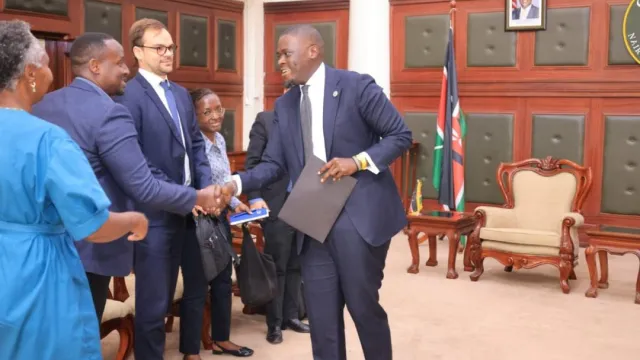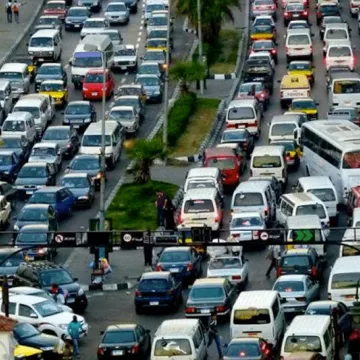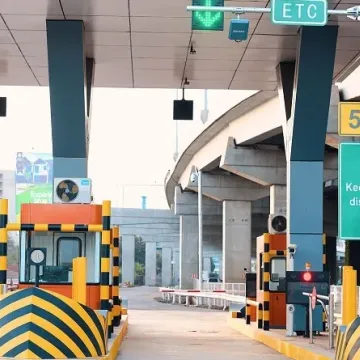Nairobi's eco-transport corridor gets Sh43Bn funding

Nairobi County Governor Johnson Sakaja (right) meets a delegation from the European Investment Bank, French Development Agency and the E.U. These entities have approved 320Million Euros financing for the Clean Core Bus Rapid Transit (BRT) LINE 3 in Nairobi.
The push to decongest Nairobi City roads and improve the travel experience for millions of people has received a boost after the county secured KES43.4 billion financing to implement a green corridor serving key transport routes.
The new financing from the European Investment Bank (EIB), the French Development Agency, and the European Union will be used to finance Nairobi’s Clean Core Bus Rapid Transport (BRT) Line 3 Project.
Clean Line 3 project is a 12km long eco-friendly road network that will cut across Nairobi city centre from East to West. This corridor is designed to connect hospitals, Dandora train station, and key markets while also interfacing with the other BRT lines already in the capital’s traffic decongestion plan.
According to the EIB, Nairobi's Clean BRT Line 3 project will involve the design and construction of a bus corridor, a bus depot, procurement, and the acquisition of zero-emission electric buses. The investment will also see the setup of bus stops, associated monitoring, ticketing, and management facilities.
The project is one of the proposed five BRT corridors envisioned under a sustainable transport blueprint plan for Kenya’s capital city.
Nairobi County Governor Johnson Sakaja said Clean BRT Line 3 project is poised to transform the transport experience for wananchi, ease traffic congestion, and promote eco-friendly movement of people and goods.
“This funding represents a significant boost to Nairobi’s transportation infrastructure. Our partners—the EIB, AFD, and EU—have approved €320 million financing for the Clean Core BRT Line 3. This is a historic moment for our city,” said Sakaja.
The BRT system is part of Nairobi’s ambitious urban mobility blueprint, which includes the rollout of improved pedestrian infrastructure, non-motorised transport options, and the integration of smart technology systems to manage traffic.
It is designed to provide an efficient, reliable, and sustainable public transport alternative for Nairobi residents, with electric buses at its core.
Sakaja added, “This isn’t just about buses; it’s about transforming how our people live, work, and move. Cleaner, safer, and more efficient transportation will uplift the livelihoods of millions of Nairobians.”
The first phase will see the construction of a 12-kilometer route from Dandora to Kenyatta National Hospital (KNH) along Juja Road with the second phase extending the network further, connecting Tala town in Machakos County to Dandora in the east and KNH to Ngong in the west.
The preliminary designs and feasibility studies for the BRT project have already been completed, with construction expected to start early next year.
As construction gears up, Governor Sakaja called on stakeholders to support the project. “This is a partnership for Nairobi’s future. We are determined to deliver a world-class transport system for our people.”





